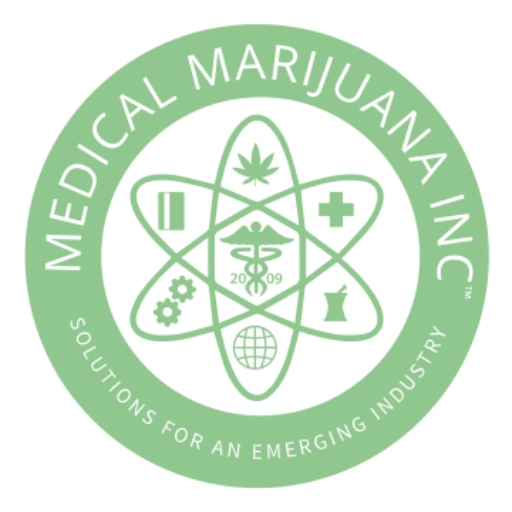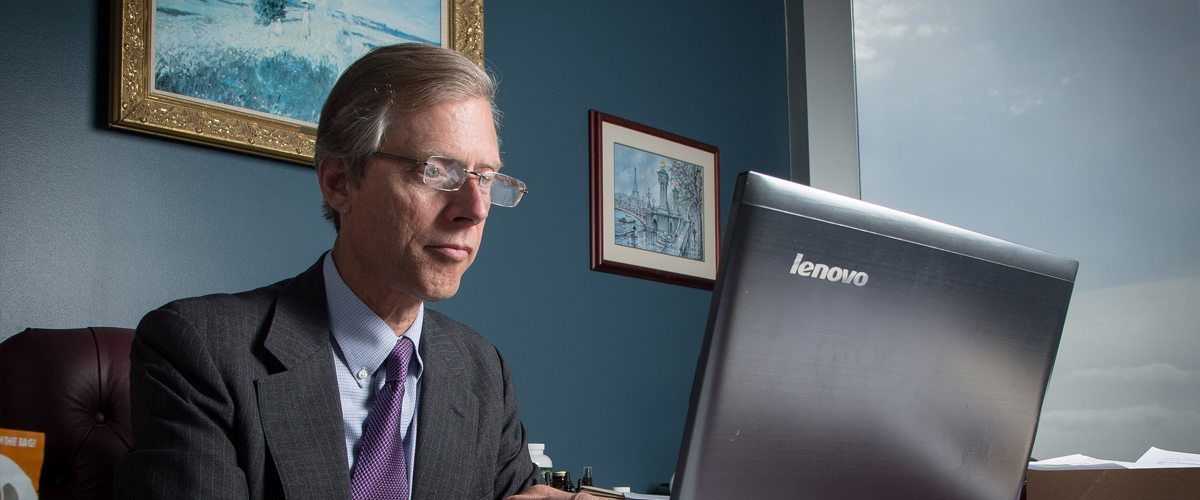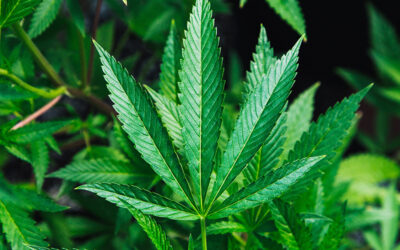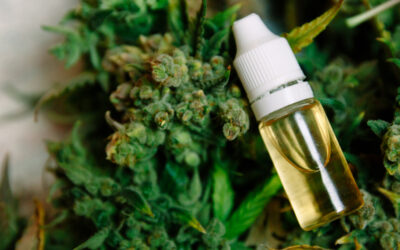In this week’s article from our CEO, Dr. Titus explains how cannabinoid nutrition can help us fight disease.
Nutrition vs Disease
Understanding how our bodies work and how health can be maintained is quite a challenge in today’s world. There is tremendous disinformation throughout our society, and we wonder why one has to search to the ends of the planet in order to get good and correct information.
With access to new information regarding cannabis and the endogenous cannabinoid system, humanity is on the brink of a vastly improved approach toward future human health and wellness. Never again will we go back to the “dark days of cannabis prohibition” once the full truth comes out.
The Politics of Healing
The “politics of health and healing” are bigger issues than most of us would want to believe. Many new and interesting therapies, supplements, and health aids are touted in media on a daily basis. A few even have good research and science behind them. However, it is rare for these therapies and approaches to make it to mass acceptance – even with good science behind them. Thus one has to become a “health sleuth” in order to seek ways to keep one’s health running at an optimal level. For many, Dr. Mercola has made this job of being a “health sleuth” much easier.
Another example of the “politics of healing” deals with the fact that today, in mid-2016, our US Drug Enforcement Administration (DEA) still considers marijuana and hemp to both be Schedule 1 federally controlled substances – with no medical value. On the other hand, this same US Government holds a patent (since 2003) on the therapeutic usage of cannabinoids: extracts from the hemp / marijuana plants with the cannabis plant family. The hypocrisy here is of incredible proportion.
An Endogenous Cannabinoid System within Our Bodies
Dr. David Allen mentions that the discovery of the endogenous cannabinoid system (mid-1980s) is the single most important discovery in medicine – ever…! He continues that “manipulation of the endocannabinoid system will save more lives than all sterile surgical interventions combined” – and Dr. Allen is a retired cardiac surgeon stating that. Unfortunately, only 1 in 7 medical schools even mentions this all important self-regulatory system, much less teach anything about it – a true disservice to mankind.
In the late 1990s, research was performed by a group including Nobel Prize Winning Laureate Dr. Julius Axelrod that led to a US Patent application through the National Institutes of Health. In October 2003, the patent was awarded to the US Government regarding the therapeutic usage of cannabinoids, US Patent # 6,630,507 titled: Cannabinoids as Antioxidants and Neuroprotectants. Link: http://www.google.com/patents/US6630507
Further, it’s been discovered that we have receptor sites within us to accept cannabinoids. The CB1 receptor is expressed primarily in the brain and central nervous system, while the CB2 receptors are found in the abdominal region or “the gut”. The CB2 receptors deal with immune function, while in the brain the CB1 receptor sites are more abundantly expressed than all other neurotransmitter sites – COMBINED…!
Cannabinoids
Cannabinoids are extracts that are abundantly found in the Cannabis plant family, which includes both industrial hemp and marijuana. Hemp, mostly grown throughout the world for its fiber and industrial applications, has recently proven, with the introduction of hemp-based nutraceutical formulations like non-psychoactive Cannabidiol (CBD), to be a potential therapeutic agent. Like with many new products, formulas, and compounds – this was first met with skepticism and ridicule – but over time has proven to be amazingly helpful for many individuals.
Cannabinoids can also be found in marijuana, which generally includes a high concentration of the psychoactive cannabinoid tetrahydrocannabinol (THC) and much lower amount of non-psychoactive cannabidiol (CBD). In hemp or marijuana, there are also trace cannabinoids that are expressed: in total there are now 80 – 100+ different cannabinoids that have been identified. Moreover, cannabinoids can be found in plants other than the cannabis plant family. Flax, hops, Echinacea, kava, and common tea also include cannabinoids as part of their chemical make-up.
I spend so much time mentioning cannabinoids here because they are vitally important for human health. Our endogenous cannabinoid system, a characteristic of all mammalian creatures (horses, dogs, fish, etc.) is the human body’s largest self regulatory system, regulating virtually every function within us. Discovered in the mid-1980s, this system controls mood, sleep, appetite, hormone production, etc. This endocannabinoid system regulates homeostasis or the overall balance within, meaning the body’s ability to regulate itself within the proper environment, according to Dr. Allen. Link: https://www.youtube.com/watch?v=LCs4B-oXOdk
Nutritional Deficiency Leads to Disease
Should one be depleted of cannabinoids, as we all have been since cannabis / hemp prohibition in the 1930s – one may well develop “Clinical Endocannabinoid Deficiency” as Dr. Ethan Russo has described. Link: http://www.ncbi.nlm.nih.gov/pubmed/18404144
Here, one may develop numerous difficult to treat conditions, such as Fibromyalgia, Chronic Fatigue, Migraine Headaches, and even Irritable Bowel Syndrome. By augmenting with plant-based nutritional cannabinoids, these conditions often disappear in long term chronic cases.
For healthy people, supporting our largest self-regulatory system with these plant based cannabinoids is a potential way to maintain optimal health. This is because of the vast reach and array of functions of this endogenous cannabinoid system. We believe that 25 – 50 mgs of plant based CBD is optimal for maintaining health and wellness.
Entourage Effect
The Entourage Effect is another great concept in cannabis based therapeutics. Also widely promoted by Dr. Russo, basically this means that the sum total of all the cannabinoids in cannabis / hemp CBD and/or THC (plus 80 – 100 trace cannabinoids), plus the other 400 or so plant compounds (terpenoids, flavonoids, plant waxes, chlorophyll), all act synergistically to provide this “Entourage Effect”. Link: https://www.youtube.com/watch?v=bDL3_yFx-Ss
This effect is potentially far more powerful than that of single or double “active ingredient extraction” (that would comprise a pharmaceutical version). Certainly people can get doctor prescriptions and (insurance paid for) medications involving synthetic THC: Marinol, Dronabinol, or Cesamet. Yet people would rather pay out of pocket to get botanical cannabis, now legal in 25 U.S. states. Interestingly in these states, overall healthcare expenditures for Medicare Part D prescription drug coverage is down by nearly one-half trillion dollars. Link: http://www.livescience.com/55309-marijuana-lowers-prescription-drug-use.html
Certainly US Government research shows that cannabinoids have a tremendous antioxidant capability with strong implications for reducing overall inflammation. The essential fatty acids from the cannabis plant family combine to provide potential benefit for Metabolic Syndrome, including heart and cardiovascular conditions, diabetes, and even into rheumatoid arthritis. The neuroprotective capabilities of cannabinoids may provide significant answers for us to maintain our nervous system and neurons well into our later years – thus keeping the health of other systems that depend greatly upon the nervous system: muscular, skeletal, circulatory, immune systems, then potentially promote better mental health, alertness, and cognition.
More re: Nutrition vs. Disease
With that said, only a handful of people know about this new science, which is “critically important for doctors (and patients) to learn”, again according to Dr. Allen. At the European Industrial Hemp Association annual conference in Germany this past month, a Dr. Collins and group from Azabu University in Japan noted that prior to World War II the Japanese were large suppliers of hemp products to world markets, including the United States. There were once 85 hemp textile factories in Japan and hemp seed was part of their diet (presumably containing trace cannabinoids).
After World War II, the US exerted their influence and Japan started cannabis and hemp prohibition in Japan. Sixty-five or so years later, Japan, formerly never having any Dementia in their society, now has 4 million dementia patients and another 3 million are soon to be diagnosed. Dr. Collins believes that this is because cannabinoid and essential fatty acid (both brain foods) containing hemp seed has been removed from the Japanese diet and now we are just seeing the long term effects.
It took Vitamin C about 50 years after discovery to become “accepted” by the medical community, and there seem many similarities with hemp and plant based CBD / cannabinoids, where the world seems on a similar trajectory. Here lies a chance to accelerate that trajectory as so many are finding that hemp-based CBD is providing them with the nutritional support to maintain / regain health and wellness. Soon we hope to even establish a recommended daily intake of plant based, botanical cannabinoids. True nutrition for health and wellness – again in our estimation.
Next time, we will look at hemp seed nutrition and why I believe that hemp seed is truly the food of our human biological adaptation.
To good health –
Stu
Stuart W. Titus, PhD
President and CEO
Medical Marijuana Inc. (OTC: MJNA)






